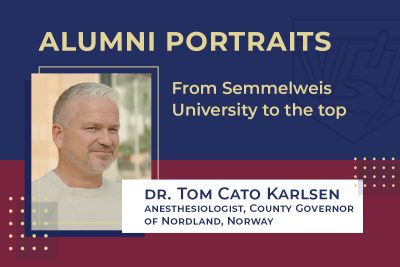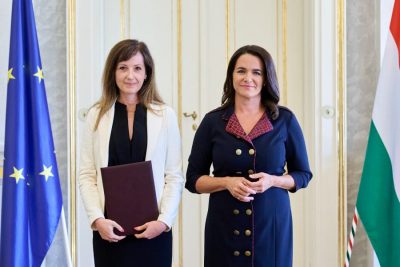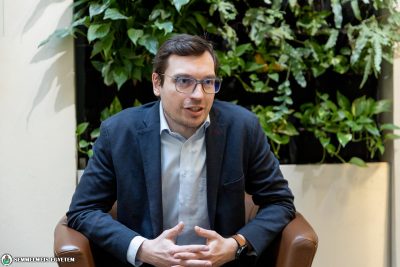Dr. Béla Merkely: The coronavirus can’t take away our holiest and most beautiful holiday, but safety must come first
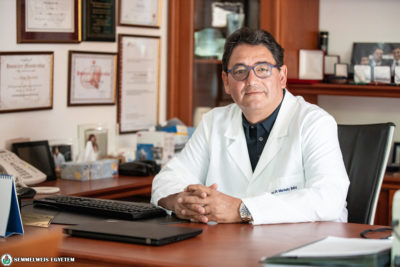 How will you be spending the holidays in this extraordinary situation, what will you pay special attention to or do differently?
How will you be spending the holidays in this extraordinary situation, what will you pay special attention to or do differently?
For our family, Christmas is one of the most important holidays. I have six siblings, three children and one grandchild, and Christmas is a good occasion for all of us to be together. This year it will be different in that my oldest son Gergő, who is a PhD student at Semmelweis University, is currently a senior postdoctoral fellow at Harvard Medical School’s Brigham and Women’s Hospital, so he won’t be coming home for the holidays. My younger son, my wife, my father, three of my siblings as well as myself have all been through and recovered from the coronavirus, and I look at this cautiously as an opportunity. I am more free to meet with my family, because for them, we represent herd immunity. At the same time, even in this situation we have to be responsible and protect our relatives and friends who are not yet immune, so this holiday season will be a more limited family affair. My other family, the Heart and Vascular Center, is also relying on me. Both as rector and as director of the center, it is especially important to me that the holiday season bring some relief to the front-line workers who have been taking part in Covid care for nine months now. So for me it is natural that I will be working until December 23, and will be in the center between Christmas and New Year’s as well, performing surgeries and making rounds. Also, as a family-friendly university, we are offering free PCR testing to every worker before Christmas, so that they more safely meet their relatives who are older, in self-quarantine or have chronic diseases.
What is your advice, what should we pay particular attention to in this period in order to reduce the risk of infection for us and our environment?
For most of us, Christmas is a time for love, family and homeliness, but this year we have to find new ways to express our love. I believe we can celebrate Christmas this year as well in smaller circles, and if the majority of the family has already been through and recovered from the infection, they likely won’t get reinfected. At the same time, I recommend that those that have not been through the disease and don’t live in the same household wear masks during the holiday as well, and don’t shake hands, kiss or hug anyone. We should experience the joy of the holiday, but remain safe even during meals and holiday toasts. Safety comes first – if we have respiratory symptoms, a fever or a loss of taste or smell, we should not meet anyone else at all, even if it means canceling at the last minute. Plan your shopping, your travel routes, and try to take care of all chores with as little contact as possible with others. We have to act responsibly and adhere to the rules, such as wearing a mask, keeping distance, and washing or sanitizing our hands. We cannot let the coronavirus take the year’s most wonderful holiday away from us, but we also cannot let our carelessness endanger our loves ones.
Sports were always important in your life, a part of your everyday routine and exercise. Although opportunities are limited now, how important do you think it is to continue to exercise, and what rules should we follow?
Lack of exercise can contribute to several diseases that are considered high-risk from the viewpoint of how Covid affects a person. Studies increasingly show, for example, that obese people have to be placed in ventilators in a higher proportion. Being fit does not protect you against the virus, but how seriously the infection affects you can depend on how fit you are, and in general we can say that an active lifestyle increases the efficiency of the immune system. Team sports or exercising indoors is now out of the question, but everyone should find the form of exercise that best fits their routine. This can be exercise done in the home, or outdoor sports, especially running, walking, bicycling – but we should always avoid crowded places.
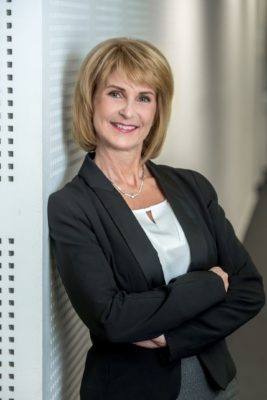 Dr. Lívia Pavlik: At Christmas, we feel loss as well as happiness deeper
Dr. Lívia Pavlik: At Christmas, we feel loss as well as happiness deeper
How will you spend the holidays under these extraordinary circumstances?
Christmas is always a special occasion: each year we plan out every detail of it, but nothing ever comes out exactly as planned. For example, the kitchen is not usually by “natural habitat,” but its different at Christmas; however, every year something, some appliance always breaks down, but this is part of the preparation as well. The holidays always had a certain order to them in my life: we spent time with the family, with parents, grandparents, siblings and children. At Christmas it always hits us harder if someone who was with us the previous year is no longer among us, but we also experience joy stronger, for example if the family has grown. Friends are mean a lot to us at Christmas, but this year we are already planning a special, different way of holding our traditional chestnut-roasting party, making it a garden party, in line with the prevailing rules. Nothing is impossible if you try hard enough, and we won’t let the circumstances overwrite many years of tradition; we will have a warm, intimate Christmas this year as well, because our spirit needs to be refreshed and we we need to look out for each other.
What will you be paying special attention to, what will be different this year?
My father, as this Christmas will be the first without our mother with us in our loving embrace.
Which university workers has the pandemic affected most?
I have been a Semmelweis citizen for only a few months. I respect every worker here, whether they work by the bedside of patients, provide the background needed for patient care, procure protective equipment, take part in building out the mobile beds in the clinics or the needed supply of oxygen. They are all working to limit the losses on the lives of Hungarians that this challenge the year 2020 has brought to us.
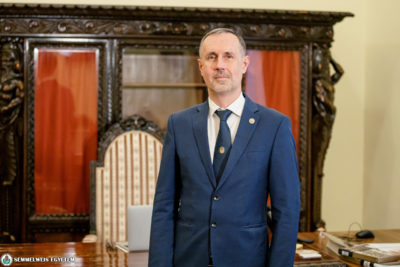 Dr. Attila Szabó: Everyone needs to let go a little under the Christmas tree
Dr. Attila Szabó: Everyone needs to let go a little under the Christmas tree
How will you spend the holidays this year, what especially will you be doing differently?
This year is different for everyone than what they had planned, which affects Christmas as well. Currently every member of my closer family that is currently in Hungary is taking part in the fight against Covid-19. My wife, Dr. Veronika Müller, is the director of the Department of Pulmonology, one of the biggest university Covid units, while our son, who is studying film, decided a few weeks ago to volunteer as a nurse’s aid. Christmas this year will be an even smaller family affair than usual, with gifts and shopping not playing a too important role, which I don’t mind at all, as we will be able to concentrate better on the holiday itself. Although the pandemic is ruling our lives almost 24/7, I believe everyone needs to let go a little under the Christmas tree. This Christmas for me is about tranquility.
What is your advice, what should we pay particular attention to in this period in order to reduce the risk of infection for us and our environment?
Christmas this year should be a quiet holiday for the closer family. Follow all the rules we have become used to by now, like washing hands, wearing a mask, avoiding crowds, and not visiting far-off relatives. “It is only with the heart that one can see rightly, what is essential is invisible to the eye” – wrote Antoine de Saint-Exupéry. Under the tree, think of our loved ones, our colleagues that have been working hard all year, as well as those that are no longer with us. I hope the situation will get better in a few months and we can be together again as before, let’s hold on until then!
Should children get the coronavirus vaccine?
All of the vaccines approved so far are only for people above age 16, and it is expected that in the EU as well older people will get vaccinated first. I don’t want to make any prediction, but it is likely that the vaccine will be available to young people in the second half of summer. This matters, because like other contagious diseases, the coronavirus will be among us in the future as well and will remain dangerous until we reach herd immunity. Most important now is for the elderly, the chronically ill and front-line workers to get the vaccine. Children are usually asymptomatic when infected, but they can still spread the disease, so the vaccine will also help the older generation be with their grandchildren again.
Pálma Dobozi, Eszter Kovács, Ádám Szabó
Translation: Tamás Deme
Photo: Attila Kovács – Semmelweis University
